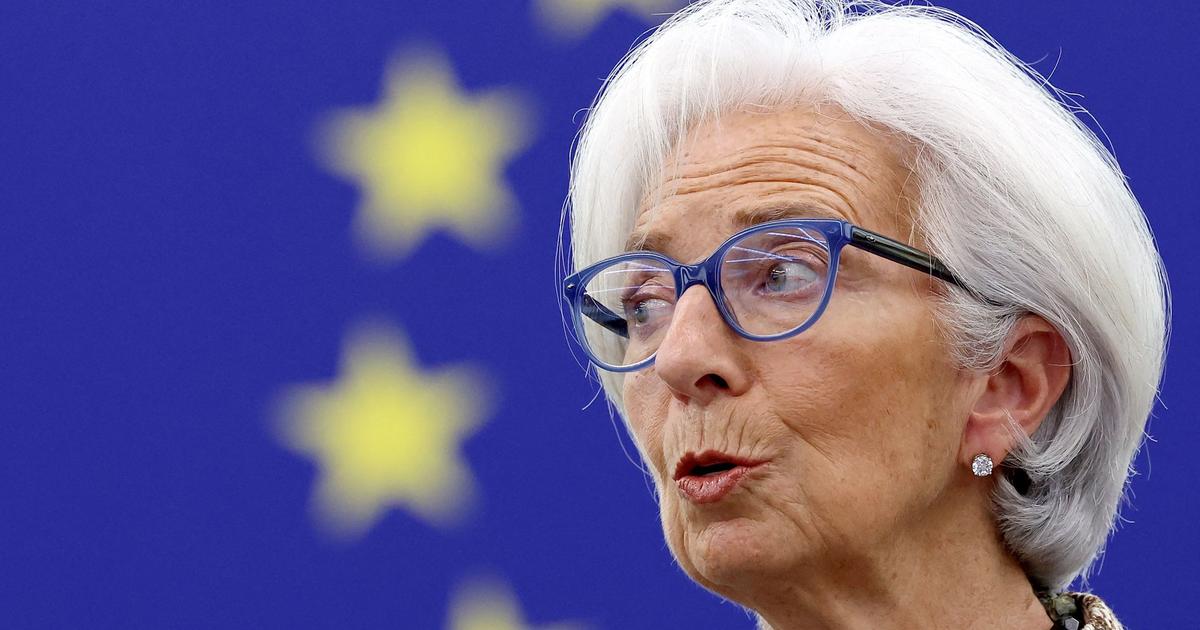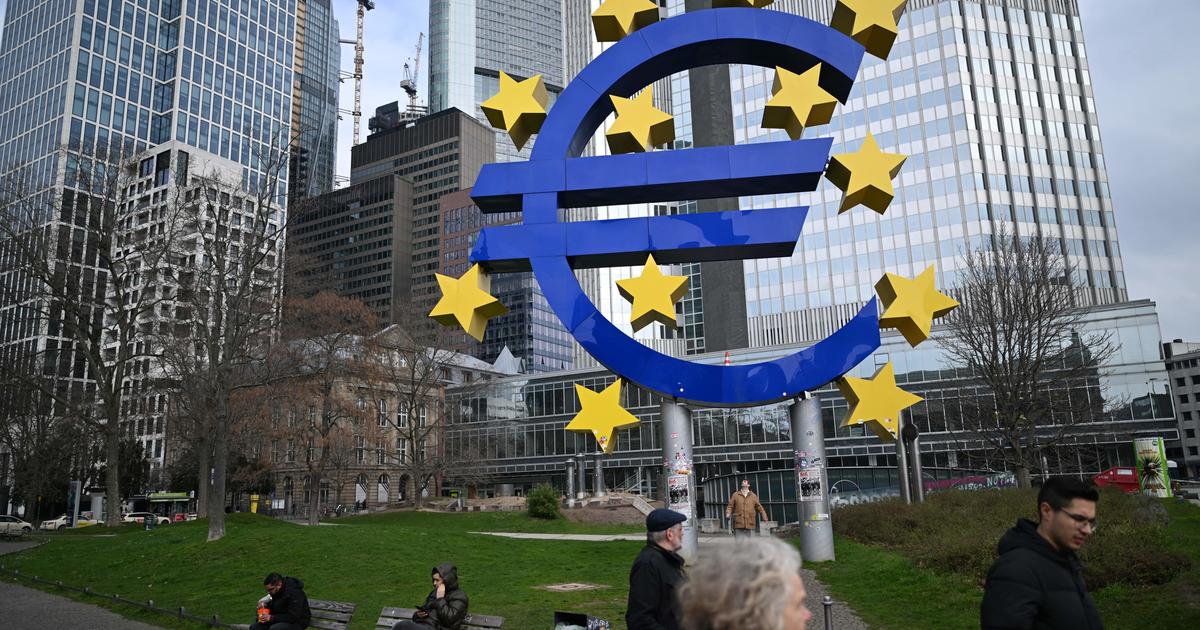Energy price inflation: The ECB must act now
Created: 05/07/2022, 10:30 am
By: Prof. Oliver Holtemöller
Prof. Oliver Holtemöller is Deputy President of the Leibniz Institute for Economic Research Halle (IWH).
© Imago/Litzka
The ECB has fueled government debt in the euro zone with a lax interest rate policy.
In view of the rapidly rising inflation and debt ratios of over 100 percent in core countries, this is now putting the central bank in an increasingly difficult position, writes Prof. Oliver Holtemöller from the Halle Institute for Economic Research (IWH) in the guest article.
Halle - The US Federal Reserve responded to the high inflation and raised the key interest rate by half a percentage point in the first week of May 2022.
That was foreseeable and well justified, because consumer price inflation in the USA is now over 8 percent and thus at its highest level since the early 1980s.
The price increase is not only due to more expensive energy, but the core inflation rate (excluding energy and food) is also over 6 percent.
This is also a consequence of the strong economic recovery after the COVID19 slump;
the gross domestic product in the USA has caught up with the pre-crisis trend.
Therefore, the US interest rate hike is hardly controversial in itself, but at most its scope.
Inflation: Prices are also rising significantly in the euro area
What is the situation in the euro area?
Here, too, prices are rising significantly, the inflation rate of over 7 percent is at an all-time high since the monetary union came into existence - as is the core inflation rate of 3.5 percent.
The economic recovery in the euro zone has not yet progressed quite as far as in the USA - gross domestic product has only just returned to the pre-crisis level - but there is little evidence of demand-side underutilization of the economy, especially since the unemployment rate is 6.8 percent is as low as it was before the financial crisis.
voice of economists
Climate change, supply bottlenecks, corona pandemic: Rarely before has interest in the economy been as great as it is now.
This applies to current news, but also to very fundamental questions: How do the billions in corona aid and the debt brake go together?
What can we do about the climate crisis without jeopardizing our competitiveness?
How do we secure our pension?
And how do we generate the prosperity of tomorrow?
In our new series ,
voices of economists
, Germany's leading economists are now providing guest contributions in the form of assessments, insights and study results on the most important economic issues - profound, competent and opinionated.
The comparatively weak economic growth is more likely to be an expression of bottlenecks on the supply side, for example due to supply chain problems, even if uncertainty, for example, also plays a role as a factor weighing on demand.
There is currently little reason for interest rate policy to stimulate the economy.
In any case, classic monetary policy indicators such as an increasing degree of capacity utilization and an inflation rate well above the target level suggest that monetary policy should be tightened.
Monetary policy must ensure general price stability
Nevertheless, an interest rate hike seems to be more controversial in Germany than in the USA.
The price increase is more due to the increase in energy prices, against which monetary policy can do little.
However, this argument is not sustainable.
Interest rate policy has a fundamental effect on the general rate of inflation by stimulating or dampening overall economic demand and not on precisely those goods prices that fuel inflation.
The task of monetary policy is not to ensure low energy prices or low food prices, but to ensure general price stability.
With interest rate policy, it can work towards this via the channel of overall economic demand, but also via inflation expectations.
more on the subject
Threatened delivery stop for Russian gas: no time for ideological reservations
Energy subsidies: protect the EU internal market from national solo efforts
Germany's Energy Dependency: Lessons from the Russia Trap
Expectations are well above the target inflation rate of 2 percent for the short and long term, regardless of whether they are forecasts by professional forecasters (consensus) or inflation expectations derived from financial market prices.
Experience has shown that once inflation expectations have been decoupled from the inflation target, consumer price inflation can only be brought back to the target level via a recession induced by interest rate policy.
So it's high time for the ECB to tighten monetary policy, thereby signaling that it continues to take price stability seriously.
Rate hike: European Central Bank hesitates
So why is the ECB hesitating?
Presumably also because years of expansive fiscal policy in the euro area have led to levels of debt that could no longer prove sustainable if interest rates rose noticeably, or at least could lead to greater turbulence on the financial markets.
The national debt ratio in France and Spain is over 110 percent and in Italy even over 150 percent.
The extremely low interest rates for government bonds over the years have enabled governments to have debt levels that are now restricting monetary policy's room for manoeuvre.
This “fiscal dominance” has long been a warning.
If the ECB does not succeed in overcoming this limitation, the inflation rate in the euro area will remain well above the target inflation rate for a long time.
About the person: Prof. Dr. Oliver Holtemöller is Deputy President of the Leibniz Institute for Economic Research Halle (IWH) and Professor of Economics, especially Macroeconomics at the Martin Luther University Halle-Wittenberg.















